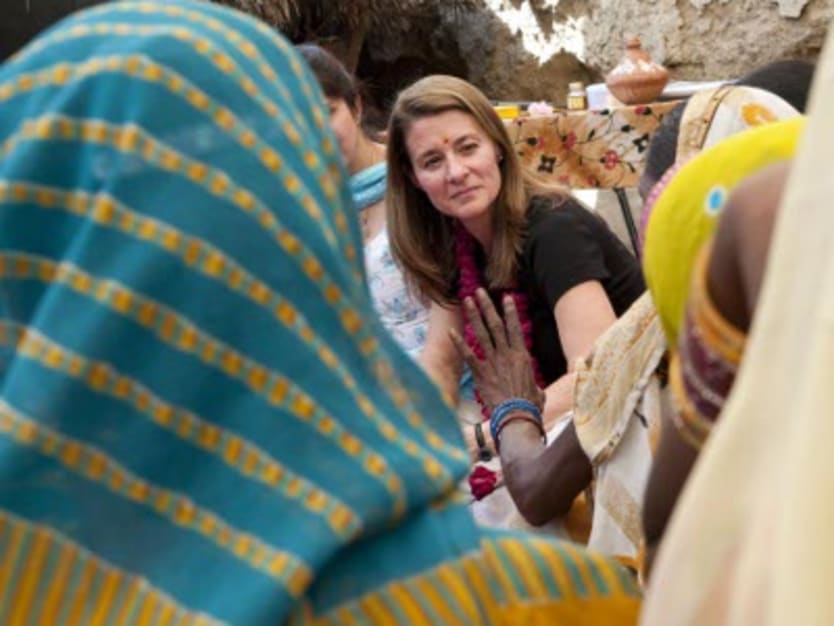
It’s the eve of a historic gathering focusing on what Melinda Gates dubs her signature cause. Tomorrow in London, she will spearhead a campaign galvanizing global support to help millions of women in developing countries get access to contraceptives.
The London Summit on Family Planning is, as expected, not without controversy. Its most vicious attacks come from Catholic bloggers and anti-abortion groups. There is even an online petition seeking 100,000 signatures from those who think the conference is “dangerous.” As of this writing, the open letter to Melinda Gates, a Catholic herself, has gathered more than 23,000 signatures.
Gates and her supporters have this to say to their critics: The summit is not about abortion but empowering women and girls to determine their future. To stress this point, they have launched a website showcasing tales of how contraceptives have changed peoples’ lives.
She also took to a July 9 op-ed for CNN to defend her stance.
“Simply giving women the means to space the births of their children three years apart would decrease deaths of children 4 and younger by 25%,” Gates wrote.
By all accounts, applause trumps objections against the London gathering. In fact, more than 250 religious leaders and executives of faith-based nongovernmental organizations have given their endorsement, calling the summit “a welcome and positive response” to addressing family well-being challenges. Several members of the Parliamentary Assembly of the Council of Europe hold similar sentiments.
And that’s on top of representatives from more than 150 developing country governments, rich nations, private companies, civil society groups and international agencies who are expected to converge at the U.K. capital in 24 hours. These include U.K. Secretary of State for International Development Andrew Mitchell — Gates’ co-host for the event — World Health Organization Director-General Margaret Chan, U.N. Women Executive Director Michelle Bachelet and U.S. Agency for International Development Administrator Rajiv Shah.
With such support, hopes are high the summit will accomplish what its organizers have set out to do: to raise enough funds that will provide affordable contraceptives to an additional 120 million women in the developing world by 2020. And just how much is needed? About $4 billion. The conference also seeks the commitment from developing countries to continue their coverage for some 260 million women using modern contraceptive services in these countries.
All these efforts, the organizers believe, will rejuvenate global interest in family planning and boost the market for quality, affordable contraceptives, ultimately widening access to these methods worldwide.
Observers agree it’s about time family planning gets back on the global development agenda.
“This is the sensible thing to do and at the right time. In recent history, family planning programs have been woefully underfunded,” said John May, a visiting fellow at the Center for Global Development, in a blog. “Greater access to family planning is not only an issue of public health but also a matter of human rights and long-run, sustainable economic growth.”
Check back in the coming days for our extensive coverage of the London Summit on Family Planning. The summit is co-organized by the U.K. Department for International Development and Bill & Melinda Gates Foundation in partnership with the U.N. Population Fund and other organizations.
Read more:
Read more development aid news online, and subscribe to The Development Newswire to receive top international development headlines from the world’s leading donors, news sources and opinion leaders — emailed to you FREE every business day.








